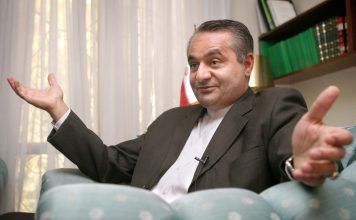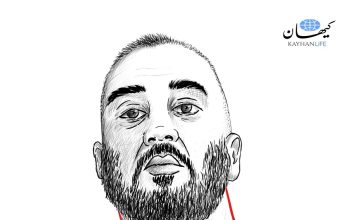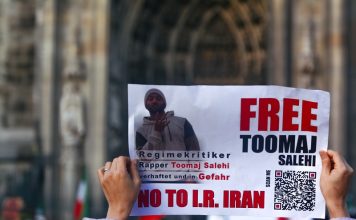Some Iranian government supporters have described the massive fluctuation in share prices on the Tehran Stock Exchange (TSE) in July as a necessary correction. Others are blaming the government.
Iran announced a plan to sell its shares in some oil refineries on the TSE in July. However, two days before the shares were supposed to be offered on the TSE, the Ministry of Economic Affairs and Finance, the Iranian Privatization Organization (operating under the auspices of the Ministry of Economy), and the Iranian Oil Ministry released contradictory statements which confused investors and rattled the stock market.
After the government promised a good return on their investment, many traders who had been lured back to the stock market are now worried about losing their money.
Kayhan Life recently spoke to a stock-market expert who wished to remain anonymous about the market crash and the TSE’s uncertain future.
Last week, the massive fluctuation in stock prices differed from the TSE’s behavior in the past few months. Some people believe that the massive price fluctuation is caused by the government’s efforts to manipulate the market. What do you think?
The market relies on supply and demand. The stock market is based on the established behavior of the buyers and sellers. Sometimes buyers doubt the accuracy of stock prices. At such times the stock market enters a technical market correction, which in most cases means that an asset price is pulling back from an overbought point.
A market correction results from a technical analysis that tries to capture market psychology and sentiment by analyzing price trends and chart patterns for trading opportunities.
However, the Iranian government is active in the stock market. It buys and sells stocks. It also polices the market and sets policies for the TSE. We do not have a free market or a command economy (planned and controlled by the government). As a result, the market is entirely unpredictable, because it depends solely on the decisions of managers. Under such conditions, nepotism replaces expertise and market analysis.
Mohsen Rezaei [the Secretary of the Expediency Council, and a veteran of the Iran-Iraq War (1980-88)], who was a commander of the IRGC [the Islamic Revolutionary Guards Corps], once described Operation Karbala-5 [the siege of Basra on Jan. 8, 1987], during which many Iranian soldiers died, as a ‘decoy operation.’
The role of the government in the stock market is like a ‘decoy operation.’
There are some 50 million stock exchange codes in Iran. Many of these have been issued in the past few months. Some 30 million stock exchange codes are active. Don’t you think many traders, most of whom are not well-informed about stocks, pose a severe problem, especially in terms of technical market corrections?
Most of the new 30 million investors are not professional traders and have a basic knowledge of the stock market. Their actions cause the market to behave erratically. Herd mentality or emotionally driven decisions [emotional trading] can also harm the stock market. Rumors become stronger than facts and cause the stock market to go up and down for no logical reason. As a result, we see long lines of sellers and buyers when stock prices fluctuate by 5 percent.
The most pressing question for investors who entered the market on the government’s advice is whether they should get out or continue trading. What is your advice to those investors who have lost a lot of money in the past few weeks? Should they stay in the stock market or get out?
There is no simple answer to this question. Anyone who is hoping to make a quick profit should get out of the stock market. The rule applies to the TSE and other stock exchanges around the world. Besides the risks endemic to any stock market, the TSE is very political and lacks transparency. It is heavily affected by domestic and foreign events.
There is also nepotism [insider trading], meaning well-connected people who access privileged information that gives them an unfair advantage. Traders who do not understand the stock market and rely on their hunches and luck must be mindful of the serious risks involved.
[aesop_image img=”https://kayhanlife.com/wp-content/uploads/2018/10/TSE-market-765085690.jpg” panorama=”off” credit=”FILE PHOTO: Iranian investors check an electronic board showing stock information at the Tehran Stock Exchange. REUTERS./” align=”center” lightbox=”off” captionsrc=”custom” captionposition=”left” revealfx=”off” overlay_revealfx=”off”]
The Iranian economy is not transparent. We don’t know the actual value of stocks or how share prices are calculated. Many unsuspecting investors bought expensive stocks in several petrochemical plants and refineries that only existed on paper. It is unclear if the government plans to build any of these companies or plants. What will investors do then? What determined the share prices of these petrochemical companies and refineries in the first place?
These are risks endemic to a stock market that is not transparent. If people can avoid these traps, they should then consider long-term investments. They should not panic when stock prices drop and sell their shares to those who manipulate the market. People shouldn’t sell their homes and cars and invest the money in the stock market.
Some people believe that the government is trying to reduce its budget deficit by encouraging the public to invest in the stock market. Do you think the government can do this?
While the government’s primary aim for urging the public to invest in the stock market is to reduce its budget deficit, there are other reasons for the measure. The Islamic Republic has failed to manage the economy, support the manufacturing sector, control the housing market, and help the car industry. The government has not protected the rial against foreign currencies.
By actively trading on the TSE, the government hopes to attract investments and control the prices of homes, cars, gold, and foreign currencies.
Housing prices are out of control. They are rising at an alarming rate. Just imagine if the money in the stock market was invested instead in housing, the car industry, or the gold and foreign exchange markets.
People will take their money out of the stock market if they don’t see a return on their investment. Even those who make money in the stock market will eventually invest their dividends in other ventures.
What is the forecast for the TSE in the next few months?
The future of the stock market in Iran is unclear. The rapid growth in the total stock market index fund (a mutual fund that invests in a basket of stocks) does not match Iran’s actual production and manufacturing. The apparent growth stock index seems to have resulted from the devaluation of the rial and inflation. Investors have concluded that stock prices must rise, given the increasing foreign exchange rate, soaring property prices, and the high cost of manufacturing materials.
This article was translated and adapted from Persian by Fardine Hamidi.







